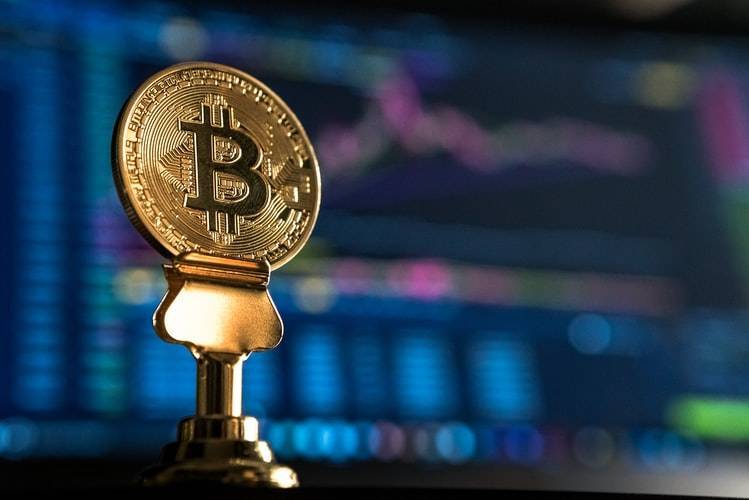Michael Novogratz, founder and CEO of Galaxy Digital, stated at the Qatar Economic Forum that he continues to buy Bitcoin and prefers the cryptocurrency over gold. Earlier on Tuesday, the CEO of Binance Holdings remarked that the cryptocurrency market remains "healthy" despite recent sell-offs. Meanwhile, the Chairman of Swiss Re, Sergio Ermotti, described cyber risks as one of the biggest challenges facing companies, second only to the pandemic. The three-day event began on Monday, during which billionaire investor Ray Dalio and former Treasury Secretary Lawrence Summers warned that the U.S. is heading into a period of activity and inflation that could threaten recovery.
**Key Points from the Second Day's Morning Sessions**
- Dalio and Summers emphasize the risk of significant inflation in the U.S. following a shift in the Federal Reserve's stance.
- Asia’s wealthiest man claims there is "no alternative" but to make businesses greener.
- Ramaphosa calls for a greater allocation of IMF reserves to aid Africa's recovery from the pandemic.
- Qatar expects a $20 billion boost to its economy from the 2022 FIFA World Cup.
- Novogratz: Long-term investment in Bitcoin outperforms that in gold (11:25 AM Doha time).
Billionaire investor Novogratz referred to Bitcoin as "encrypted gold," stating that if one were to invest long-term in gold, Bitcoin represents a better version as it experiences downturns similar to gold but remains in early stages of adoption. He noted that "cryptocurrencies are a luxury in advanced markets but a necessity in developing markets where currencies depreciate by 20% to 30% annually." For general cryptocurrency users, he suggested that Bitcoin and Ethereum "may be sufficient."
Dan Morehead, CEO of Pantera Capital, added in the same session that there are many good crypto products other than Bitcoin to invest in. He highlighted that Bitcoin has risen by 34% this year, and their hedge fund has gained 240%, noting the importance of Ethereum as the second-largest cryptocurrency.
**Binance CEO: Crypto Market Remains Healthy (11:10 AM Doha time)**
Changpeng Zhao, CEO of Binance Holdings, indicated that "it's very difficult to know" what caused the drop in cryptocurrencies, citing positive news such as El Salvador's adoption of Bitcoin alongside negative headlines like China's crackdown on the currency. He mentioned that "from our perspective, we only see people placing trading orders." Zhao expressed optimism that more countries would adopt cryptocurrencies, suggesting that China’s tightening on Bitcoin mining companies would have short-term effects rather than long-term impacts.
**Masters Sees $10 Trillion Opportunities in Fintech Companies**
Blair Masters, CEO of Motive Capital, sees tremendous investment opportunities in technologies that integrate disparate networks within finance. During a fintech discussion session, she emphasized the special excitement around developing "platform-like businesses that connect extensive networks," stating the market potential is enormous. Masters noted, "More than one dollar out of every five dollars spent on technology is spent on fintech by financial and non-financial firms, representing a market opportunity worth $10 trillion." She previously held an executive position at JPMorgan Chase.
**Ermotti Warns of Cyber Risks (10:45 AM Doha time)**
Sergio Ermotti, Chairman of Swiss Re, remarked that there’s widespread awareness of the risks of major cyberattacks but questioned whether there are enough potential solutions. He highlighted the difficulty in predicting cyber risks and noted that insurance premiums for cyberattacks currently generate about $7 billion annually for insurers. Swiss Re anticipates demand for insurance covering these risks will triple to around $20 billion by 2025, with current estimates suggesting claims related to cyber risks reach $1 trillion annually.
**Mittal Highlights Need for Competition in Telecom Sector (10:25 AM Doha time)**
Sunil Mittal, Chairman of Bharti Airtel Ltd, India’s second-largest wireless operator, stated that following painful price competition, only "two and a half operators" remain in the Indian telecom sector. He warned that it would be "tragic" if this number falls to just two. Despite gaining market share, Mittal's company still lags behind Mukesh Ambani's Reliance Jio Infocomm, the largest network in India by subscribers. He warned that the potential bankruptcy of Vodafone Idea Ltd., the third player, would not bode well for the telecom sector or Indian consumers, asserting that "India is a very large country and deserves to have three private players."
**India's Largest Recruitment Firm: Flexibility Increasing (10:00 AM Doha time)**
Natarajan Chandrasekaran, Chairman of Tata Sons Pvt Ltd, remarked that the world of work will not return to pre-COVID normalcy. While he insisted that offices would remain important centers and employees would gradually return, he noted that workplaces would benefit from greater flexibility enabled by technology. When the pandemic hit India in early 2020, the 150-year-old conglomerate quickly adapted to lockdown restrictions, with Tata Consultancy Services Ltd reporting that approximately half a million employees transitioned to working from home.
**Google Expects AI to Lead Cloud Computing Business**
Google anticipates that artificial intelligence and data analytics will drive opportunities in its cloud computing business, as stated by its CFO. Rath Bourat expressed enthusiasm for the investments and opportunities in Google’s cloud business, which leverage exceptional data analytics and AI capabilities. He noted that the cloud operations have prioritized targeting financial services and retail sectors to gain more business, distinguishing themselves from competitors like Microsoft Corp and Amazon.com.
**Qatar May Restrict Debt Issuance in the Gulf (7:30 AM Doha time)**
One of the largest and highest-rated borrowers in the Gulf may not need to return to the debt market soon, although it might choose to take advantage of low-interest rates. Ali Al Kuwari, acting Minister of Finance and Minister of Commerce and Industry for Qatar, stated, "The only scenario in which we might need funding is purely to enhance our financial position, such as refinancing maturing debts at a lower cost." Rising global energy prices enabled the small nation to achieve a surplus of QAR 200 million ($54 million) in the first quarter, compared to an expected deficit of QAR 54 billion. In an interview during the Qatar Economic Forum broadcasted fully on Tuesday, he indicated that if the situation persists, investors should anticipate that Qatar will return to bond markets "only to seize the opportunity."




